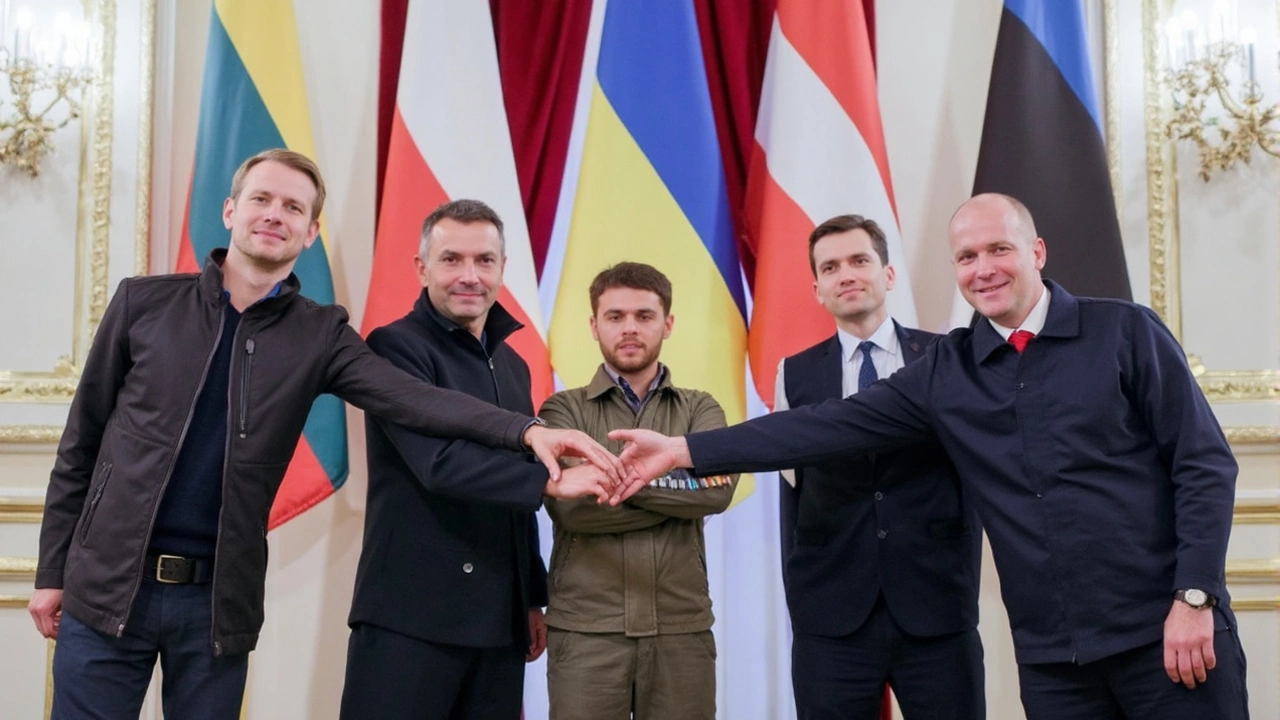Unity Visit by Polish and Baltic Presidents
The presidents of Poland, Lithuania, Latvia, and Estonia recently took a significant step in showing solidarity with Ukraine by visiting Kyiv on April 13, 2022. Traveling by train from Poland, Andrzej Duda, Gitanas Nauseda, Egils Levits, and Alar Karis demonstrated their unwavering commitment to Ukraine amidst the ongoing Russian invasion. This visit was more than just diplomatic; it was a heartfelt pledge of continuous support to a nation in crisis.
The visiting leaders didn't just stop at meetings; they ventured to Borodyanka, a town deeply affected by the horrors of the conflict. Here, Russian forces had left a trail of destruction, killing civilians and wrecking infrastructure. Lithuania's President Nauseda remarked on the immense suffering witnessed, stressing the importance of winning this war and advocating for Ukraine's EU membership. The grim scene in Borodyanka underscored the moral imperative driving their support.
Ongoing Support and Sanctions Talk
During their meeting with Ukrainian President Volodymyr Zelensky, the visiting presidents reiterated their promise of military aid and reinforced their political backing. They took a firm stance on the need for harsher sanctions against Russia, putting the spotlight on exports like oil and gas, as well as the country's banking sector. President Zelensky expressed profound gratitude for the early support provided by these nations—support that was critical when the invasion first began.
Coinciding with their visit was a major announcement from the United States. President Joe Biden approved an $800 million package in military assistance, which included artillery systems and helicopters to bolster Ukraine’s defenses. This move signals a broader international effort to support Ukraine on the battlefield.
President Duda of Poland addressed the unspeakable war crimes committed, labeling acts against civilians as sheer terrorism. Such declarations are pivotal, as they push the international community to hold Russia accountable for its actions in Ukraine.
Additionally, the Ukrainian leader expressed aspirations for Ukraine's NATO membership, aiming for a decision at a future summit in Vilnius. Meanwhile, another diplomatic twist unfolded as Germany's President Frank-Walter Steinmeier’s planned visit faced rejection by Ukraine due to prior policies that were seen as too lenient towards Russia.
In light of these developments, the union of the Polish and Baltic leaders with Ukraine is a strong symbol of solidarity and shared values amidst challenging times. As these nations strive to navigate the turbulent waters of war, their collective efforts aim to steer both regional and broader international policies towards a lasting peace.
